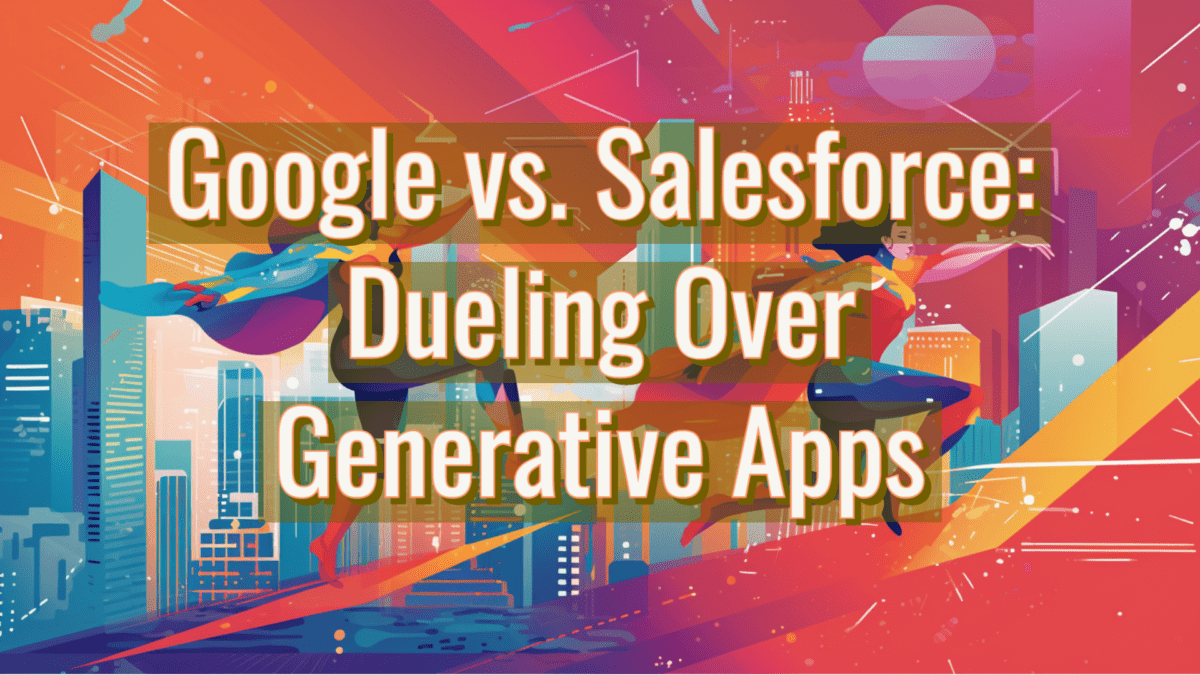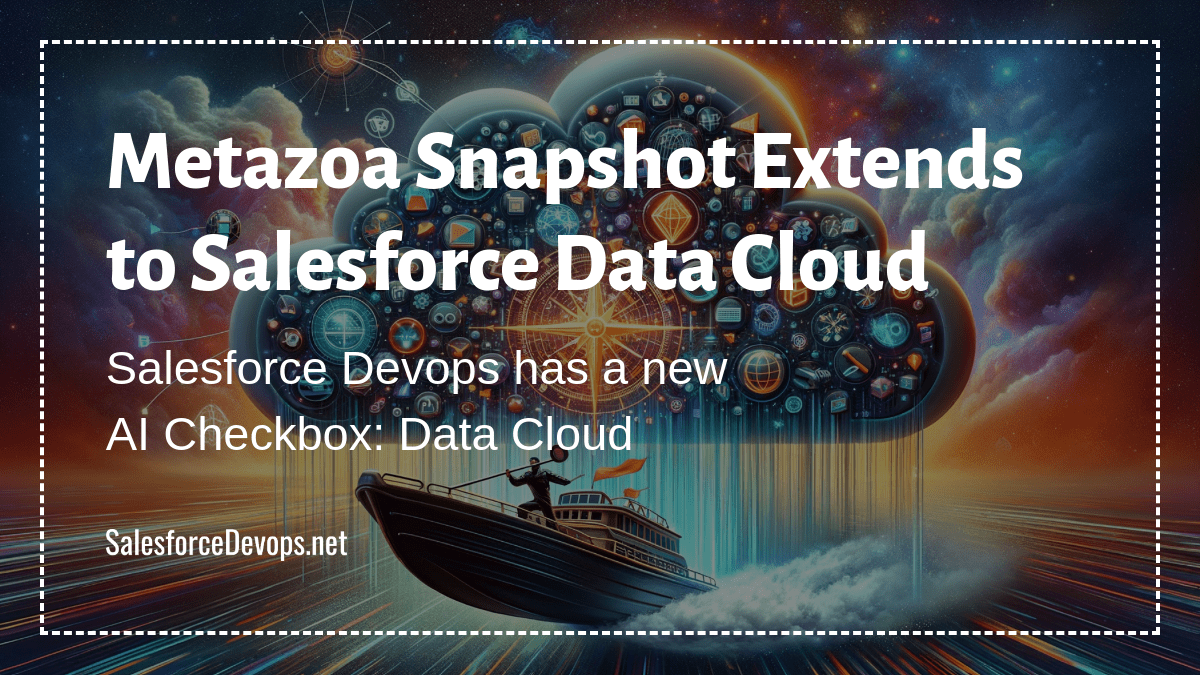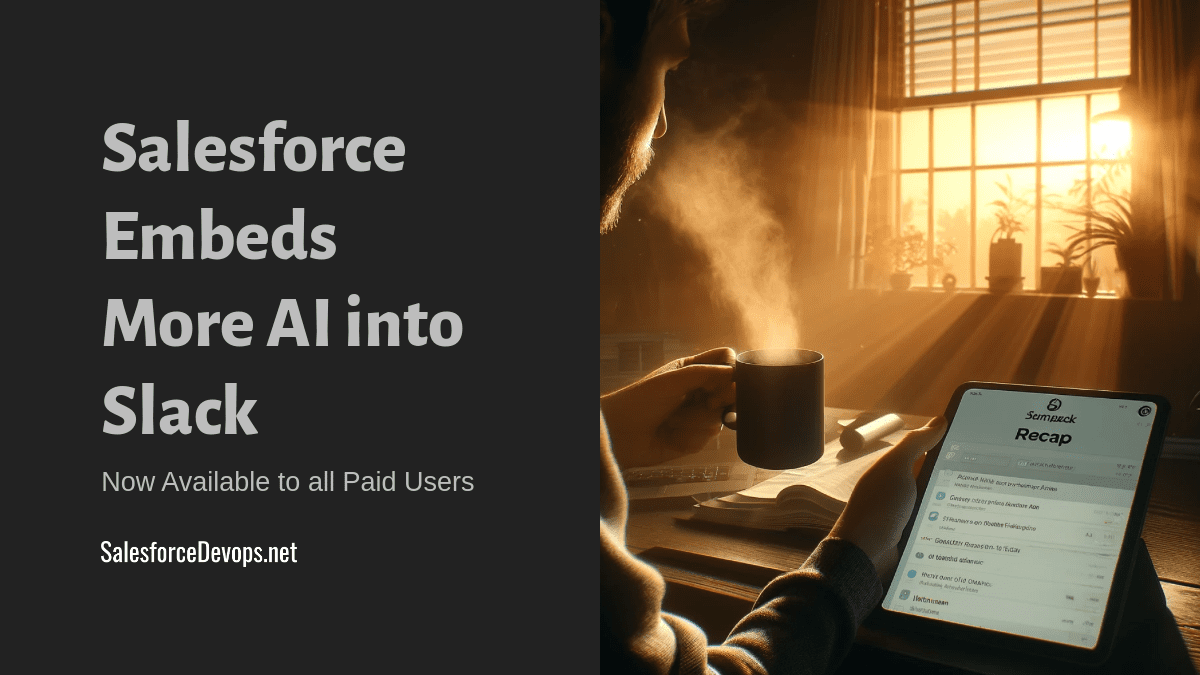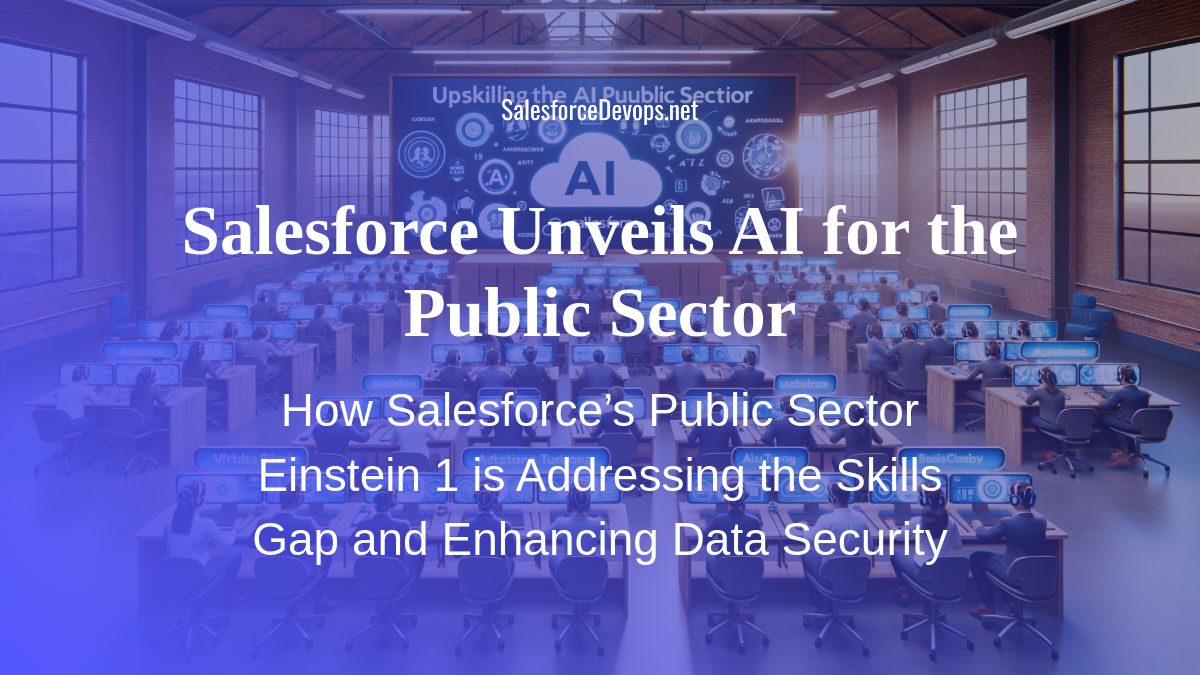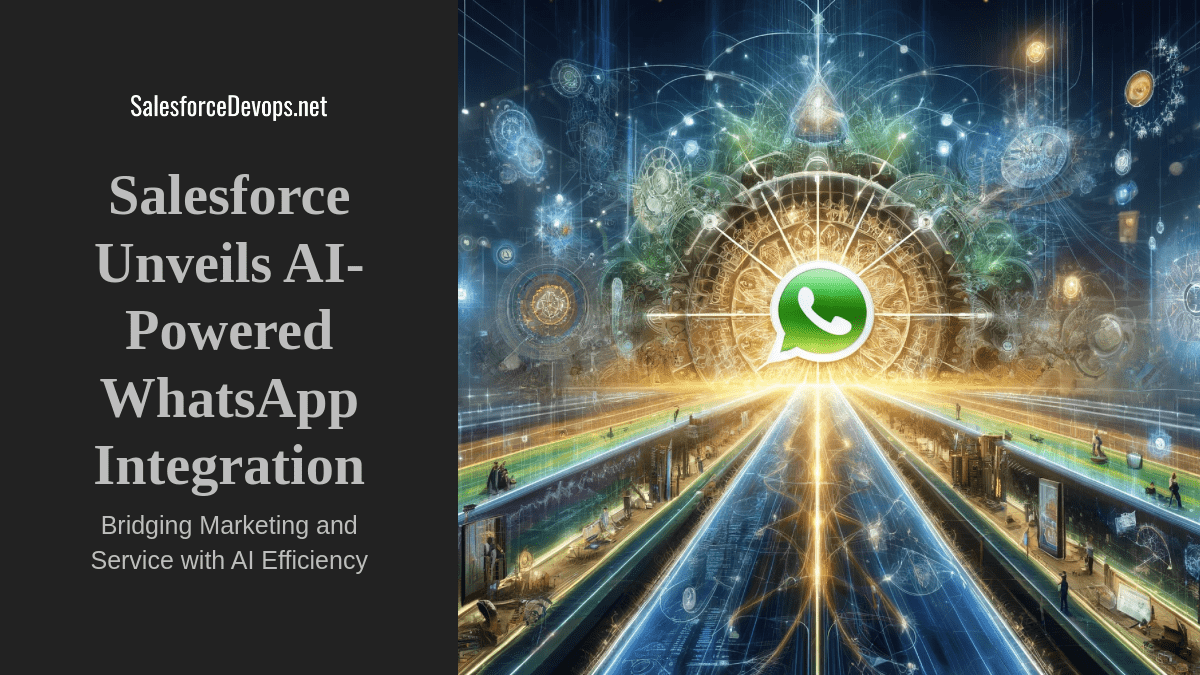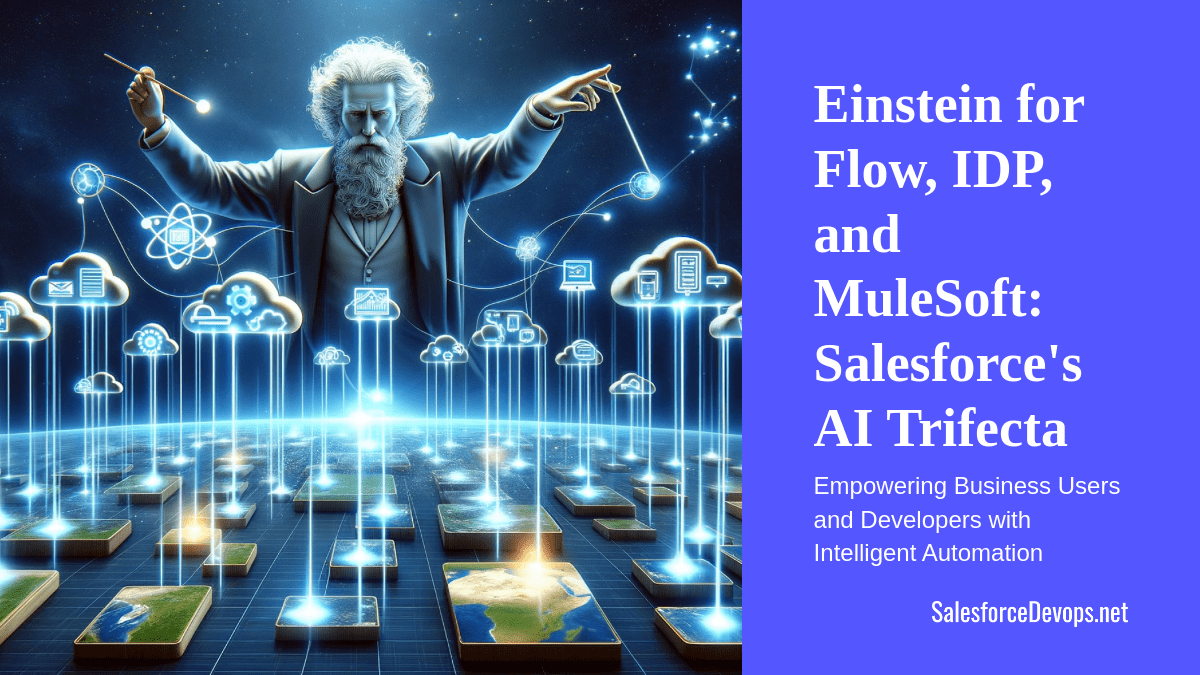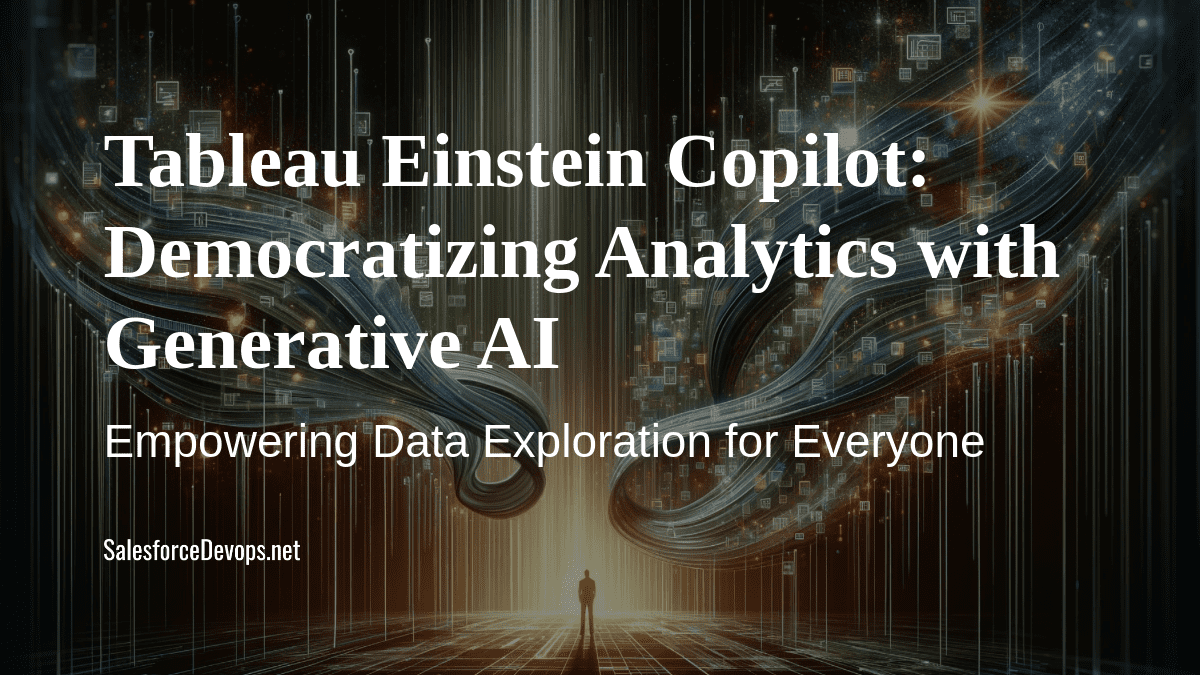Google vs. Salesforce: Dueling Over Generative Apps
As the billion-dollar markets for AI-powered applications and automation continue to grow, tech giants Google and Salesforce find themselves in an intense battle for domination. In this high-stakes game of one-upmanship, both companies have recently announced powerful new generative AI apps. Each are vying for the attention of customers seeking to leverage AI for improved efficiency, productivity, and growth. In this post I will look at Google’s and Salesforce’s latest offerings and compare the two products to explore the implications of their heated rivalry.
Google Strikes First: Google’s Generative AI App
In a bid to maintain its leadership position in the AI market, Google last month announced the launch of a generative AI app last month. This innovative app allows users to create powerful automations and workflows using natural language, making it easier for non-technical users to harness the power of AI in their everyday tasks. Key features include:
- Enhanced search capabilities: Offers an intuitive, personalized search experience across text, images, and video.
- Summarized search results: Provides search results in a natural, human-like summary with corresponding citations.
- Key information extraction: Automatically extracts key information from data for better insights.
- Personalized results: Delivers search results tailored to individual user preferences.
- Rapid implementation: Allows enterprises to build conversational search experiences across public and private data with minimal coding experience.
- Multimodal search: Enables users to search across various data sources, such as text, images, and video.
- Applicable to various industries: Can be utilized in retail, finance, and other industries to improve customer engagement and employee productivity.
By offering these features, Google Gen App Builder aims to help developers and enterprises to create intuitive search experiences, drive increased process efficiencies, and provide delightful experiences to their employees and customers.
Salesforce Fights Back: Salesforce’s Einstein GPT and Data Cloud Capabilities for Flow
Not one to be left behind, Salesforce responded to Google’s announcement with its own groundbreaking generative AI app, the Einstein GPT and Data Cloud capabilities for Flow. By combining the power of Salesforce’s Einstein GPT, a generative AI CRM technology, with Flow, the company’s portfolio of automation tools, users can create and modify automations using a conversational interface.
This drastically simplifies the flow creation process and significantly lowers barriers for non-technical users. With real-time data, Salesforce’s new offering aims to enable users to automate complex workflows, trigger actions based on real-time changes, and create personalized experiences for both employees and customers.
Key points include:
- Flow now powered by Einstein GPT and Data Cloud, enabling complex workflow automation based on real-time data.
- Einstein GPT for Flow can generate workflows from text prompts, automating the flow creation process.
- Real-time automation technology offers benefits to various industries, such as marketing, commerce, financial services, and manufacturing.
- Salesforce’s Success Ecosystem extends generative AI and data offerings with specialized expertise, partnering with companies like Apisero, Atrium, DeciZone, Infosys, Persistent, smrtr, and Wipro.
- A new strategic planning offering with Salesforce Professional Services for Einstein GPT and Data Cloud aims to help customers accelerate their AI, data, and CRM implementation.
Head-to-Head: Comparing Google’s and Salesforce’s Generative AI Apps
To provide a comparison of these two announcements, let’s take a look at the features each company brings to the table:
| Factors | Google Gen App Builder | Salesforce Einstein GPT for Flow |
| Primary Focus | Enhancing search capabilities and data utilization within enterprise apps | Automating workflows and simplifying flow creation |
| AI Integration | Combines Google-quality search and generative AI | Integrates generative AI (GPT) within Flow |
| User Experience | Offers a more intuitive, personalized search experience across various data | Enables users to create and modify automations using a conversational interface |
| Target Users | Developers and enterprises looking to improve search experiences and data utilization | Business users and admins seeking to streamline workflow automation |
| Search Capabilities | Multimodal search across text, images, and video, with summarized results and key information extraction | N/A |
| Workflow Automation | N/A | Automates complex workflows and triggers actions based on real-time changes |
| Personalization | Delivers personalized search results based on user preferences | Automates personalized experiences for employees and customers |
| Industries/Applications | Applicable to various industries, including retail, finance, and more | Applicable to various industries, including marketing, commerce, financial services, and manufacturing |
This table compares Google Gen App Builder and Salesforce Einstein GPT for Flow based on factors like primary focus, AI integration, user experience, target users, search capabilities, workflow automation, personalization, and industries/applications.
How Salesforce Einstein GPT for Flow Works
Based on the press release, a user would employ Einstein GPT to create a flow by simply providing a text prompt describing the desired automation. For example, the user types “Send an email to a group when an opportunity is won.”
Einstein GPT for Flow then interprets the prompt and guides the browser to click on appropriate options and input the required information into the Flow Builder user interface. It understands the context of Salesforce records and metadata to configure the action correctly, significantly simplifying the flow creation process and making it more accessible to non-technical users.
The Final Showdown: A Battle of Titans
As the race for generative AI supremacy heats up, both Google and Salesforce have unveiled powerful new applications, each with its own unique set of features and capabilities. While Google’s offering is an impressive step forward in the world of generative AI, Salesforce’s Einstein GPT and Data Cloud capabilities for Flow may have the edge due to their deep integration with Salesforce CRM, a system already widely used by many organizations.
In this high-stakes game of one-upmanship, both companies are vying for the attention of customers seeking to leverage AI for improved efficiency, productivity, and growth. As the battle rages on, the ultimate winners will be the customers who stand to benefit from the rapid advancements in generative AI technology and the powerful new applications that emerge from this fierce competition.
